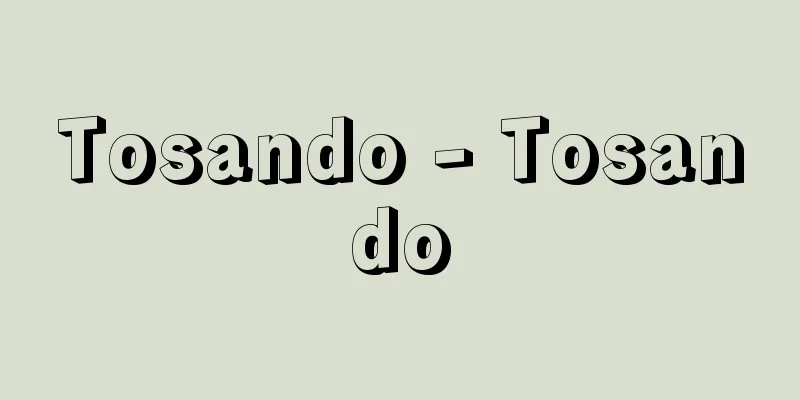Variable capital

|
The part of capital invested in production whose value changes during the production process. Capital invested in wages corresponds to this. In other words, it is labor power itself. The labor power of a laborer employed for wages produces more value than its equivalent (surplus value), which becomes the source of profit for the capital owner. As opposed to constant capital, whose value does not change. → Related topics Organic composition of capital | Rate of surplus value Source : Heibonsha Encyclopedia About MyPedia Information |
|
生産に投じられる資本のうち,生産過程でその価値の大きさの変わる資本部分。賃金に投下される資本がこれに当たる。すなわち労働力そのものである。賃金で雇われる労働者の労働力は,その等価物以上の価値(剰余価値)を生産し,これが資本の所有者の儲(もうけ)の源となる。価値の変わらぬ不変資本に対する。 →関連項目資本の有機的構成|剰余価値率 出典 株式会社平凡社百科事典マイペディアについて 情報 |
<<: Petal-shaped cross-section thread
Recommend
Tin chloride (enkasuzu)
There are tin(II) chloride and tin(IV) chloride. [...
Lecture - Kou
A group formed mainly in the local community to a...
Amsterdam Commodity Exchange - amsterdam commodity exchange
… [function] Commodity exchanges are the most hig...
Village Headman's Association - What is the mechanism?
In early modern Edo, this refers to the regional g...
Mosquito repellent - Kakusube
…This method is used in many places, and in Japan...
Mars Rover - Kasei Tansaki
A spacecraft that explores Mars and its surroundi...
Permanent neutrality
A country that is bound by treaty not to start a ...
New Imperial Anthology of Waka Poetry
The ninth imperial anthology of waka poetry. 20 v...
Awashima
Common name for Awashima Shrine. During the Edo pe...
Ichiko (Ichiko) - Ichiko
They are also called Azusa Shrine Maidens, Spirit ...
Contract farming - contract farming
This is a general term for the form in which a fa...
Ionization voltage
...Therefore, atoms with smaller ionization energ...
Second Republic (English: La Deuxième République French)
The French political system established by the Fe...
quipu
...Such practices are often found in primitive so...
Electrical Engineering - Densan
The abbreviation for the Japan Electrical Industry...



![Teradomari [town] - Teradomari](/upload/images/67cc465cc459b.webp)





